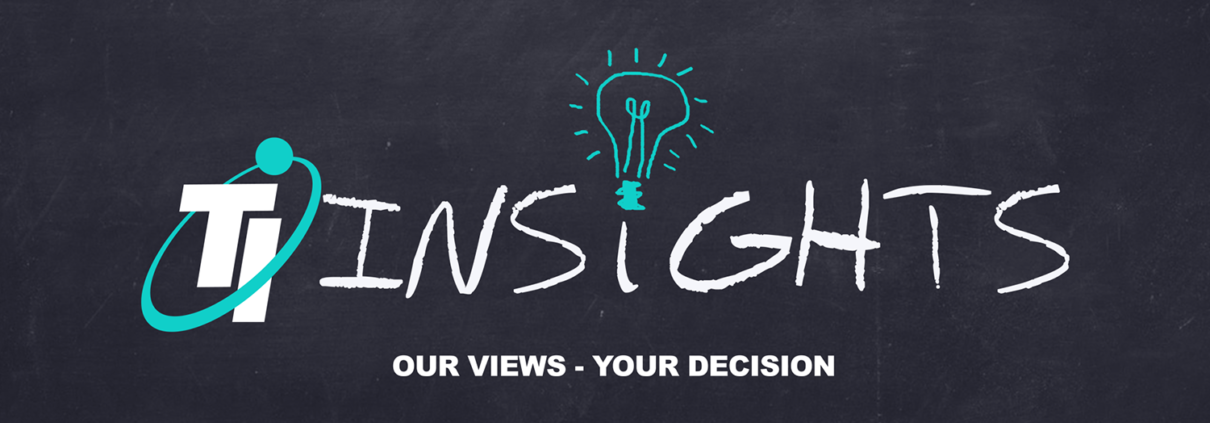The Shifting Complexity of Group and Incentive Travel
Over the past two years, we have seen a significant shift in the management and requirements for Group, Meeting and Incentive travel.
These shifts include various aspects such as sustainable venue sourcing, traveler health and wellbeing, the cost/benefit evaluation and overall attendee satisfaction.
Trends that are defining and propelling immediate focus for event management include a shift to incorporate the transient travel team to improve the cost containment of the event, and the need for air travel oversight, service and flexibility. In this edition of TI Insights, our attention is providing our input on an expanded view of your company’s Return on Investment and why the need for Flexible Air Travel Management can make or break the memory and satisfaction of your attendees.

Depending on the scope of the event, the cost of bringing in employees to a team meeting or training program could be anywhere from $500 – $1,500 per person; and incentive trips to cost on average $5,000 per attendee. In order to budget appropriately and ensure a successful ROI, two primary considerations should be in place:
1– Defining Objectives
While all companies have a clear understanding of the objectives – example: boosting sales, improving morale and team collaboration, increasing productivity or strengthening client relationships – many do not include the desired measurements of performance post event. The return on investment must include the combined oversight of the cost of the event, alongside the metrics to evaluate the success of each meeting. Some examples for metric evaluation from a commercial perspective include:
- Sales Incentive trip: Increase in sales by 15% per award recipient, and an additional 15% by the top individual contributors vying for the award the upcoming year.
- Improving morale: Decrease in turnover by 20% reducing cost of talent acquisition, training which could take anywhere from 3-6 months prior to full productivity.
- Strengthening Client relationships: Increase of client retention or decrease in loss of business by no more than 5% year over year.
2– Cost Containment:
The costs of the trip should include the resources required to plan, event duration, transportation, accommodations and activities, to name just a few. A well planned event can reduce and contain costs while ensuring the event was memorable long after the return home. Opportunities for cost containment include:
- Location Sourcing: Many comprehensive event service providers will include venue sourcing at no cost to the company. They are compensated by the properties chosen for your event. This can reduce the cost to you for multiple trips to locations for site inspections by your team prior to contracting and then return trips to finalize details.
- Travel Incorporated partners exclusively with HelmsBriscoe who provides the sourcing at no cost, as well as full service options for your consideration.
- Air Management and Negotiations: By bringing in the air sourcing to the transient program, this will increase the opportunities for future carrier negotiations, preferred supplier contracts and overall market share impacts to the broader travel program.
- Travel Incorporated’s Group Travel Partners (GTP) is a group air specialty division with expertise in group airline negotiations, air lift/inventory, destination analysis, route planning and budget development.
- They can also support the use of UATP payment options from prior unused ticket spend of the transient travel program to further reduce the cost of the event.

Transient/business travel focuses on moving a single traveler from point A to point B. Group travel is a much more challenging process to manage due to the nature and complexity of attendee management, arrival/departure restrictions and budgeting guidelines.
Group and incentive travel often involves participants from various locations with different schedules and commitments. Flexible air travel options allow for easier coordination, including options for companion travel, allowances for upgrades through personal loyalty programs or split forms of payment when the attendee requests a premium class of service.
Managing Unexpected Changes: Travel plans can change due to unforeseen circumstances such as flight delays, cancellations or personal emergencies. Flexible travel arrangements allow groups to adapt quickly to these changes without disrupting the entire trip. This flexibility is particularly important for incentive travel, where maintaining a positive experience is essential.
Confidence and Traveler Wellness: A key goal of incentive travel is to provide an enjoyable and memorable experience. Changes due to last minute travel disruptions create unnecessary personal stress, impacting the overall traveler satisfaction of the trip – whether the impact is at the beginning of the trip or the return home. Proactive travel monitoring is essential to ensure the traveler is confident in the arranging of alternate flight options and having the piece of mind based upon clear and effective communication.
- Proactive day of travel monitoring is essential for the success of any meeting or event. Even when an airline rebooks the traveler on the next available flight, the routing may not be acceptable to the traveler or keynote speaker based upon the event’s agenda.
- Communication is key. TI’s Group Travel Partners not only monitors the flights, but ensures, through direct attendee communication, that any airline rebooking is acceptable to the traveler or provides options for booking on an alternate flight or carrier.
- Manifests need to be managed and flight arrival changes communicated to the onsite point of contact to ensure hotel check-ins are rescheduled and ground transportation is notified based upon the new arrival details.
- Budgetary considerations must be agreed to in advance, providing the approval for additional cost acceptance parameters for the rebooking of flights to avoid any further delays based upon waiting on an approval notification by the meeting coordinator.

In summary, group travel management is changing and the need to accommodate diverse travelers needs to enhance their experience is pivotal to a successful event. Your company has a responsibility to ensure the return on investment is sound and can be measured, while building in the management for flexible travel arrangements that are personalized and have the assurance of attentiveness due to a last minute change or travel disruption.
If you would like to learn more about Travel Incorporated’s Group Travel Partner service offerings, contact your Client Success Manager for information.








Leave a Reply
Want to join the discussion?Feel free to contribute!